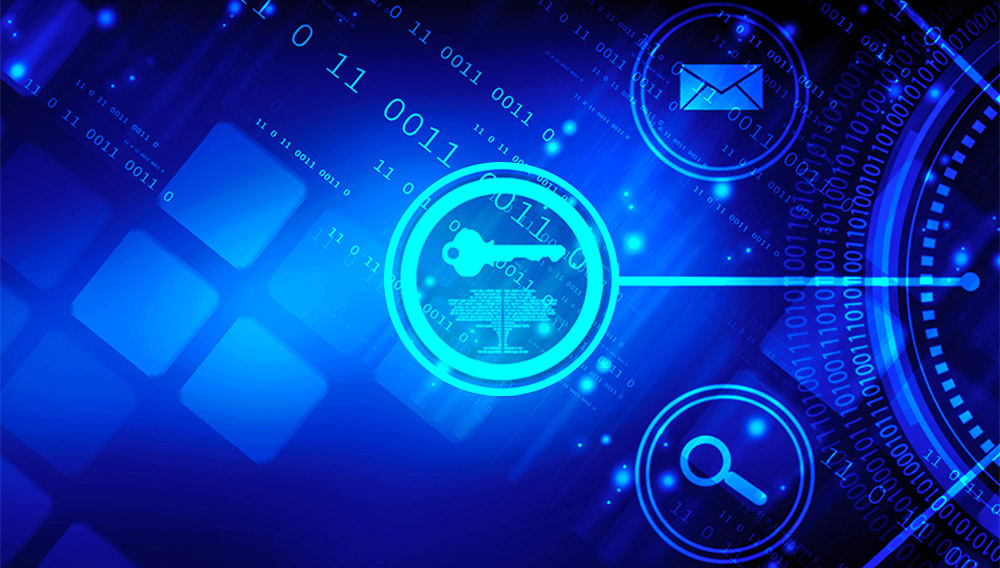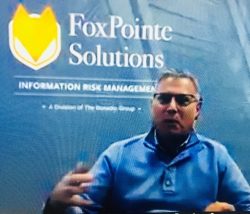Risk or Resilience: A Look at Fraud, Forensics, and Cybersecurity Challenges and Career Opportunities

Cybersecurity challenges impact both individuals and businesses. We all spend time on computers, mobile phones, and mobile apps, as these are part of today’s technology and conveniences. However, without cybersecurity awareness, it is easy to click a link and later find out you have been a victim of a cyber-attack or data breach.
As our digital footprint increases, so does the risk. Some business are now requiring multi-factor authentication when you log into work. This is just one means of protection, like what banks use when you access your own account.
Cybersecurity is essential for businesses. From January through June 2020, various Fortune 500 companies experienced massive data breaches and hackers sold account credentials and other sensitive data, leading to the exposure of 8.4 billion records in the first three months of the year alone, according to Security Boulevard, a cybersecurity news site. RiskIQ predicts that by 2021, cybercrime will cost the world $11.4 million each minute.
Threats to cybersecurity are one reason why Excelsior College and Siena College co-hosted a recent webinar on fraud, forensics, and cybersecurity. Experts working in these fields shared their perspectives on current challenges and career opportunities.
 One challenge is keeping everyone up to date on the ever-changing information to bridge learning in the classroom to what is happening in the real world. Companies need experts to reduce risk of cyber-attacks.
One challenge is keeping everyone up to date on the ever-changing information to bridge learning in the classroom to what is happening in the real world. Companies need experts to reduce risk of cyber-attacks.
To increase the cyber workforce to guard against cyber risk, education is a necessary tool. Cyber education is important for those considering a cybersecurity career pathway to identify and defend against cyber-attacks, says Amelia Estwick, PhD, director of the National Cybersecurity Institute at Excelsior College. “Excelsior College is recognized as a Center of Academic Excellence in Cyber Defense Education [by the National Security Agency and U.S. Department of Homeland Security]. We align to the National Initiative for Cybersecurity Education (NICE) Framework and equip students with knowledge to defend against the cyber threat landscape.”
Using industry experts in curriculum development and delivery helps keep the educational experience relevant. Estwick noted, “At Excelsior College, we bring industry experts and practitioners to teach in the classroom and bridge the cyber knowledge gap.”
Resilient & Reducing Risk
 Beyond the classroom, applying cybersecurity skills to real-world scenarios is crucial. “Cybersecurity is important since with ransomware, a virus can spread within minutes and impact an organization. Now with the holiday season, hackers are taking advantage of phishing emails,” according to John Roman, CIO, The Bonadio Group; president and COO, Bonadio’s Information Risk Management and Cybersecurity Division, FoxPointe Solutions. “The pandemic has taught us how to be resilient for businesses that moved from office to home within 24 hours.”
Beyond the classroom, applying cybersecurity skills to real-world scenarios is crucial. “Cybersecurity is important since with ransomware, a virus can spread within minutes and impact an organization. Now with the holiday season, hackers are taking advantage of phishing emails,” according to John Roman, CIO, The Bonadio Group; president and COO, Bonadio’s Information Risk Management and Cybersecurity Division, FoxPointe Solutions. “The pandemic has taught us how to be resilient for businesses that moved from office to home within 24 hours.”
With cybersecurity, the landscape is constantly shifting with technology consultants using cyber tools to solve client’s problems. The forensic side has picked up in the last six months as people have learned about breaches from the media. There is a tremendous amount of cloud work now too. There are also changes in cyber with the workforce now more mobile. It can be challenging to collect information when employees work from their own devices, instead of company-supplied computers.
 For those considering a career as a cybersecurity consultant or advisor, Richard Peters, senior information security advisor, UHY LLP, stated that a “tenacious curiosity” and personality are important. “From an advisor’s perspective, we focus on risk,” he said. “We start there and preach to be proactive like insurance. We don’t really want it, but we need it. The challenge is convincing clients to be proactive and evaluate (cyber) risk ahead of time.”
For those considering a career as a cybersecurity consultant or advisor, Richard Peters, senior information security advisor, UHY LLP, stated that a “tenacious curiosity” and personality are important. “From an advisor’s perspective, we focus on risk,” he said. “We start there and preach to be proactive like insurance. We don’t really want it, but we need it. The challenge is convincing clients to be proactive and evaluate (cyber) risk ahead of time.”
Matt Miller, principal in the New York Office of KPMG LLP’s U.S. Cyber Security Services Financial Services, commented on working in this field during a pandemic. “Many employees are remote working and you feel like you are always available,” he continued, “The workday has been moving to 15-minute blocks of meetings. One thing missing is the collaborative nature you would get from water cooler conversations when in an office.”
For those considering cybersecurity careers, here are some recommendations for next steps:
- Kali Linux, an advanced penetration testing distribution and security audit, is recommended so you can scan your own networks at home and learn about cyber tools. Just be careful when scanning across the internet.
- Consider self-studies on virtual servers. Microsoft and IBM have skills academies.
- Find a cybersecurity mentor.
- When selecting an educational institution, make sure it has information security certification. For those interested in ramping up skills in cybersecurity, feel free to visit Siena College and Excelsior College.
- Stay hungry, stay inquiring, stay inquisitive.
- The experts who participated in the panel invite you to contact them on LinkedIn.



